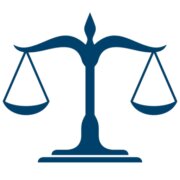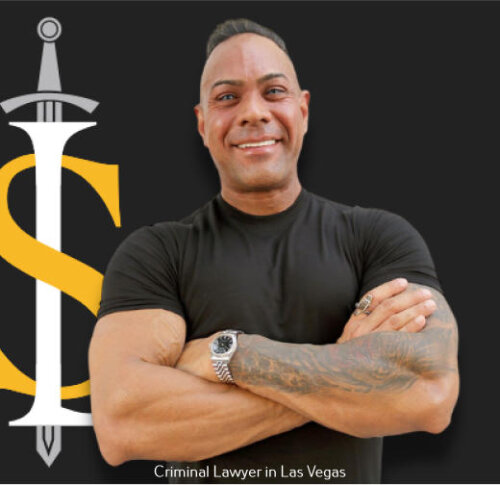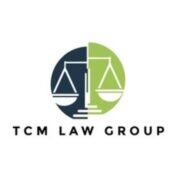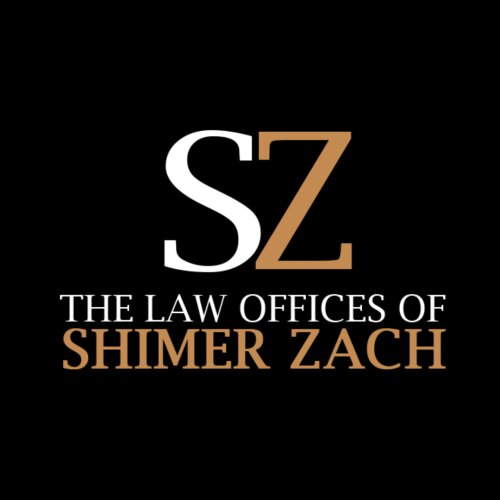Best Criminal Defense Lawyers in Las Vegas
Share your needs with us, get contacted by law firms.
Free. Takes 2 min.
List of the best lawyers in Las Vegas, United States
United States Criminal Defense Legal Questions answered by Lawyers
Browse our 1 legal question about Criminal Defense in United States and read the lawyer answers, or ask your own questions for free.
- Do you prosecute local Philippina for violating ESTAFA laws
- I was scammed by a lady presenting herself as my girlfriend.
-
Lawyer answer by mohammad mehdi ghanbari
HelloBased on the laws of the Philippines, you can file a criminal complaint against the person who scammed you for violating the laws on Estafa (swindling). Estafa is a criminal offense that involves defrauding another person of money or property...
Read full answer
United States Criminal Defense Legal Articles
Browse our 3 legal articles about Criminal Defense in United States written by expert lawyers.
- Clearing Your Record in Texas: 2026 Expunction Rules for US
- Criminal defense in the United States protects your rights from the moment of investigation through trial, sentencing, and appeals, and the stakes can include jail, fines, immigration consequences, and your future job prospects. You always have key constitutional rights: to remain silent, to have a lawyer, to be free from... Read more →
- Texas DWI Laws 2026 First Offense Penalties
- If you are arrested in the United States, you have the right to remain silent, the right to a lawyer, and the right to a fair trial - use those rights from the start. Criminal cases move quickly at the beginning: after arrest come booking, bail, your first court appearance,... Read more →
- Texas Bail Reform 2026: Why Bonds Are Harder to Secure in US
- If your loved one has just been arrested, move fast: confirm the exact charges, find out the bond amount, and contact a criminal defense lawyer immediately. In the United States, you have core rights at every stage - to remain silent, to an attorney, to reasonable bail (subject to exceptions),... Read more →
About Criminal Defense Law in Las Vegas, United States
Criminal defense law covers the legal rules, procedures, and court practice that apply when a person is accused of committing a crime. In Las Vegas, which is in Clark County, Nevada, criminal cases move through local law enforcement, prosecutors, and the state court system. The Nevada Revised Statutes set the substantive criminal laws, while local courts and prosecutors handle charging, pretrial procedures, pleas, trials, sentencing, and post-conviction relief. People accused of crimes in Las Vegas have constitutional rights, including the right to remain silent, the right to an attorney, and the right to a jury trial. How a case proceeds depends on the charge, the evidence, prior record, and choices made by defense counsel and prosecutors.
Why You May Need a Lawyer
Criminal cases can have serious and long-lasting consequences - fines, jail or prison time, loss of driving privileges, immigration consequences, damage to employment prospects, and difficulties in housing. A lawyer protects your rights, explains the law and possible outcomes, negotiates with prosecutors, represents you in court, and develops defenses or mitigation strategies tailored to your situation.
Common situations where you may need a criminal defense lawyer in Las Vegas include being arrested or questioned by police, receiving a citation or criminal complaint, facing DUI or driving-related charges, being charged with drug offenses, assault or domestic violence charges, theft or property crimes, weapons offenses, or facing felony charges that carry prison time. You may also need a lawyer for probation violations, juvenile matters, or to pursue record sealing or expungement when eligible.
Local Laws Overview
Nevada Revised Statutes - The substantive criminal law in Las Vegas follows the Nevada Revised Statutes. Statutes define offenses, classify crimes as misdemeanors or felonies, and set penalties and sentencing ranges. Local court rules and statewide rules of criminal procedure govern how cases move through the system.
Courts - In Clark County, municipal and justice courts generally handle misdemeanor cases, traffic offenses, and preliminary matters. The district court handles felony cases, more serious matters, and trials where greater penalties are possible. Appeals go to the Nevada Court of Appeals or Supreme Court depending on the type of case and applicable procedures.
Prosecution and law enforcement - The Clark County District Attorney prosecutes most criminal cases arising in Las Vegas. Law enforcement agencies commonly involved include the Las Vegas Metropolitan Police Department, university police, and federal agencies when federal offenses are involved.
DUI and traffic - Nevada has strict laws for driving under the influence of alcohol or drugs. Penalties increase with prior offenses, high blood-alcohol content, or injury or death caused. Administrative driver license actions from the Nevada Department of Motor Vehicles may be separate from criminal proceedings.
Drug offenses - Nevada law distinguishes between possession, possession with intent to sell, trafficking, and manufacturing. Penalties depend on the controlled substance, quantity, and prior convictions.
Weapons and violent offenses - Firearms and violent crimes are treated seriously. Prior convictions, use of a weapon, or alleged domestic violence can increase charges and penalties.
Sentencing and probation - Judges impose sentences based on statutory ranges, sentencing guidelines, criminal history, and aggravating or mitigating factors. Probation, community service, counseling, or diversion programs may be options for eligible defendants.
Record relief - Nevada provides mechanisms for sealing or expunging records in some circumstances. Eligibility depends on the offense, disposition, time elapsed, and whether certain statutory conditions are met. The term people commonly use - expungement - may be applied differently under state law, so consult a lawyer to understand options.
Frequently Asked Questions
What should I do immediately if I am arrested in Las Vegas?
Stay calm and be respectful. You have the right to remain silent - you can say you wish to exercise that right. Ask for an attorney and stop answering questions until one is present. Do not consent to searches without a warrant. If you are released on citation or bail, keep any paperwork and note deadlines such as arraignment dates. Contact an attorney as soon as possible.
Do I have to speak to the police or answer questions?
No. You have a constitutional right to remain silent. You can politely tell officers you wish to exercise that right and request an attorney. Talking to police without counsel can lead to statements that harm your case. If you are not under arrest, you can also ask whether you are free to leave and whether you are being detained.
Will I get a public defender if I cannot afford a lawyer?
Yes, if you are charged with a crime and you cannot afford private counsel, the court will generally appoint a public defender or other indigent defense attorney for eligible defendants. Eligibility rules vary, and you will usually need to complete a financial declaration for the court. Public defenders handle many cases and provide important representation; for complex matters you may still consider hiring private counsel if you can afford it.
How does bail or pretrial release work in Las Vegas?
Bail is a system to ensure a defendant returns to court while allowing release from custody. The court or jail may set bail based on the charge, criminal history, flight risk, and public safety. Some offenses have bail schedules, while others require a judge to make a decision. Alternatives to cash bail can include surety bonds, personal recognizance release, or conditions such as GPS monitoring. A lawyer can request lower bail or argue for release on conditions.
What is the difference between a misdemeanor and a felony in Nevada?
Misdemeanors are less serious offenses that usually carry shorter jail terms, smaller fines, or probation. Felonies are more serious crimes with the potential for state prison sentences, larger fines, and greater collateral consequences such as loss of certain civil rights. Classification affects the court in which the charge is heard, the potential penalties, and long-term effects on employment, housing, and immigration status.
How long will my criminal case take to resolve?
There is no single timetable. Cases can resolve quickly by plea at arraignment, take months through pretrial motions and negotiations, or proceed to trial which can add weeks or months. Felony cases typically take longer than misdemeanors. Factors that affect timing include the complexity of the case, court calendars, investigation needs, discovery disputes, and whether the defendant is in custody.
Can my criminal record be sealed or expunged in Nevada?
Nevada allows for certain forms of record relief, including sealing or expungement for eligible offenses, under specific conditions and timelines. Eligibility depends on the type of offense, how the case was resolved, time since completion of sentence or probation, and statutory requirements. Not all convictions are eligible. An attorney can evaluate your record and advise whether you qualify and on the process for filing petitions in court.
What penalties can I face for a DUI in Las Vegas?
Penalties for DUI in Nevada range based on blood-alcohol level, prior DUI convictions, whether there was an accident, injury, or death, and whether a minor was present. Consequences can include fines, license suspension or revocation, mandatory alcohol education or treatment, ignition interlock device requirements, probation, and jail or prison in more serious cases. Administrative DMV actions may also affect your driving privileges independent of criminal penalties.
What is a plea bargain and should I accept one?
A plea bargain is an agreement between the defense and prosecution where the defendant pleads guilty to a lesser charge or receives a recommended sentence in exchange for avoiding trial. Pleas can reduce penalties and provide certainty, but they also result in a conviction. Whether to accept a plea depends on the strength of the prosecution's case, the available defenses, the likely trial outcome, and your goals. Discuss risks and benefits with an attorney before deciding.
How do I choose the right criminal defense lawyer in Las Vegas?
Look for experience handling cases similar to yours, familiarity with local courts and prosecutors, trial experience if your case may go to trial, clear fee structures, and good communication. Ask about outcomes in comparable cases, how they will handle your defense, who will do the work, and how often they go to trial. Arrange a consultation to assess comfort level and practical considerations such as availability and cost. Consider public defender options if you are indigent.
Additional Resources
State statutes and courts - Nevada Revised Statutes and information from Nevada state courts provide the controlling statutes and procedural rules.
Prosecutor and court offices - Clark County District Attorney and local courts handle criminal charging and court schedules.
Law enforcement - Las Vegas Metropolitan Police Department is commonly involved in local arrests and investigations. Other agencies may be involved depending on the incident.
Public defender offices - Clark County Public Defender and the Nevada State Public Defender serve eligible defendants who cannot afford private counsel.
Nevada State Bar - Use the state bar to verify attorney credentials, find disciplinary history, and use lawyer referral services.
Legal aid and nonprofit organizations - Local legal aid providers and civil rights organizations may offer assistance or referrals for low-income residents or specialized issues.
Victim services - If you are a victim of a crime, there are local victim-witness programs and advocacy services that provide support and information about court processes and compensation options.
Corrections and probation - Nevada Department of Corrections and local probation departments manage sentences, parole, and community supervision matters.
Note - Contact local agencies or consult an attorney for current procedures, eligibility rules, and office locations or phone numbers.
Next Steps
If you need legal assistance for a criminal matter in Las Vegas, consider these practical next steps -
- Preserve documents and evidence - Keep police reports, citations, bail paperwork, medical records, witness names, photos, and any messages related to the incident.
- Do not discuss details publicly - Avoid posting about the case on social media or speaking to others about the matter, including law enforcement, without an attorney present.
- Request an attorney - If you are detained or arrested, clearly request a lawyer and stop answering substantive questions until counsel is present.
- Decide on representation - If you cannot afford a private lawyer, apply for a public defender. If you can hire private counsel, schedule a consultation to review the case, possible defenses, fees, and strategy.
- Prepare for your meeting - Bring identification, court paperwork, any discovery you have, a timeline of events, and questions about likely outcomes, fees, and next court dates.
- Meet deadlines - Criminal cases have strict procedural timelines for arraignment, filings, and hearings. Make sure you or your attorney meets court deadlines to protect rights and options.
- Consider immediate needs - If you are in custody, address bail options. If you face license suspension, get advice on DMV or administrative remedies quickly.
- Follow legal advice - Once you retain counsel, communicate openly, follow court-ordered conditions, and attend all hearings.
This guide is for informational purposes and is not a substitute for legal advice. Criminal law is fact-intensive and time-sensitive - consult a qualified criminal defense attorney in Las Vegas to get advice tailored to your situation.
Lawzana helps you find the best lawyers and law firms in Las Vegas through a curated and pre-screened list of qualified legal professionals. Our platform offers rankings and detailed profiles of attorneys and law firms, allowing you to compare based on practice areas, including Criminal Defense, experience, and client feedback.
Each profile includes a description of the firm's areas of practice, client reviews, team members and partners, year of establishment, spoken languages, office locations, contact information, social media presence, and any published articles or resources. Most firms on our platform speak English and are experienced in both local and international legal matters.
Get a quote from top-rated law firms in Las Vegas, United States — quickly, securely, and without unnecessary hassle.
Disclaimer:
The information provided on this page is for general informational purposes only and does not constitute legal advice. While we strive to ensure the accuracy and relevance of the content, legal information may change over time, and interpretations of the law can vary. You should always consult with a qualified legal professional for advice specific to your situation.
We disclaim all liability for actions taken or not taken based on the content of this page. If you believe any information is incorrect or outdated, please contact us, and we will review and update it where appropriate.
Browse criminal defense law firms by service in Las Vegas, United States
Las Vegas, United States Attorneys in related practice areas.
















